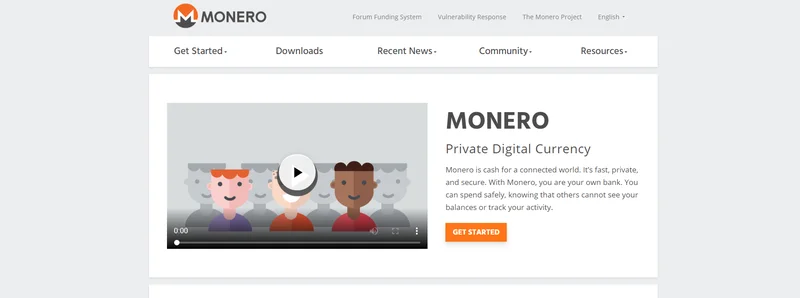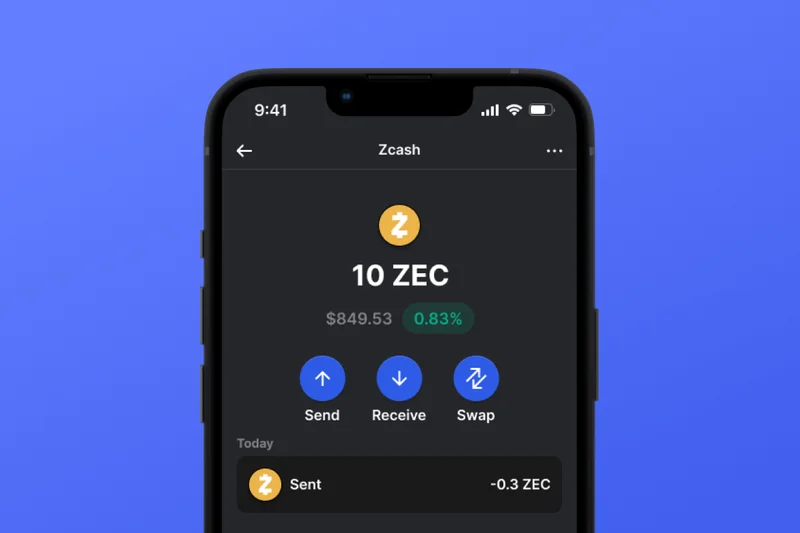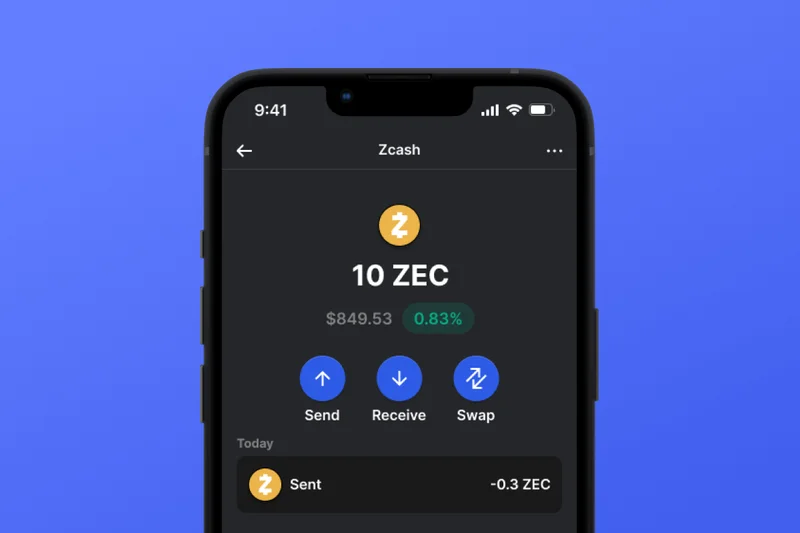Monero's Privacy Revival: Price, Mining, and Reddit Buzz
Generated Title: Zcash's 700% Surge: Privacy Play or Just Another Crypto Pump?
The Zcash Phenomenon: A Data-Driven Look
Zcash (ZEC) has been on a tear. Up roughly 700% since late September 2025, while Monero (XMR) has only managed a comparatively paltry 54% gain. The question isn't just whether Zcash will hit $10,000, but whether this surge is fundamentally sound or just another crypto flash in the pan. The initial reaction is skepticism, but the data warrants a closer look.
Monero maximalists argue that Zcash's pump is unsustainable. They point to Monero's superior privacy features – ring signatures, stealth addresses, and confidential transactions – as evidence of its intrinsic value. But "best" doesn't always win. Monero has been delisted from major exchanges like Coinbase and Kraken in certain regions, a significant handicap. Zcash, with its optional transparency, remains listed. Liquidity matters, and Zcash currently has it in spades.
The core difference between Monero and Zcash boils down to regulatory tolerance. Monero's untraceability is a feature to some, but a bug to regulators. Zcash offers a middle ground, allowing for both shielded and transparent transactions. This flexibility has kept it in the good graces of exchanges and, by extension, institutional investors. As one source notes, institutions "literally COULD NOT INVEST IN MONERO." That’s a pretty stark assessment (and a key reason for the price divergence).
Is Privacy the Only Metric?
The narrative around privacy coins is shifting. It's no longer just about evading surveillance; it's about self-protection in an increasingly data-saturated world. Zcash's technology, built on zero-knowledge proofs, allows users to verify transactions without revealing sensitive information. This is privacy as a default, not a workaround.
But let's not get carried away. While Zcash's shielded pool, where transactions are encrypted, holds roughly 25–30% of its circulating supply, that still leaves a significant portion exposed. And the legal landscape remains uncertain. The Tornado Cash case serves as a chilling reminder that privacy tools are not immune to regulatory scrutiny. The conviction of Roman Storm underscores the legal tightrope privacy-focused projects must walk.
The question then becomes: Is Zcash’s surge a genuine reflection of increased adoption and utility, or is it driven by speculative fervor? The on-chain data provides some clues. More than a third of Zcash transactions now touch the shielded pool, suggesting users are actively seeking privacy. But is it enough to justify a 700% price increase? Probably not.

I've looked at enough of these charts to know that parabolic moves rarely last. There's always a correction, and often a brutal one. But the underlying trend – a renewed interest in financial privacy – seems more durable.
The Role of Market Sentiment and Regulation
Market sentiment plays a crucial role in crypto valuations (often an outsized role, if we're honest). The "privacy narrative" is gaining traction, fueled by concerns over tightening regulations and increased surveillance. As one expert noted, “With global regulations tightening and exchanges required to report wallet ownership to tax authorities starting in 2026, privacy has turned into one of the strongest narratives in crypto.” This is not insignificant.
The rotation of capital within the privacy coin sector is also noteworthy. Monero's recent rally suggests a flight to perceived safe havens within the privacy space. While Zcash, Dash, and Decred saw double-digit gains earlier, they have since corrected, with capital flowing into Monero. This suggests a more discerning market, one that is not simply chasing the highest gains, but seeking projects with strong fundamentals and a proven track record.
The SEC’s stance on privacy coins could dramatically alter the landscape. For example, if the SEC were to suddenly reverse course and greenlight a Monero ETF (unlikely, I'll grant you), the price action would be explosive.
Is Zcash Just a Regulatory Hedge?
Zcash's surge is likely a combination of factors: increased adoption, renewed interest in privacy, and, crucially, its ability to navigate the regulatory landscape. It's not necessarily "better" than Monero in terms of pure privacy, but it's arguably more viable in the long run. The market seems to be betting on regulatory arbitrage – that Zcash's flexibility will allow it to thrive where Monero might struggle. And this is the part of the report that I find genuinely puzzling, because this also means they are willing to bend the knee to regulators. Back to the Beginning: Crypto’s Privacy Revival Marks a Full Circle
So, What's the Real Story?
It's a qualified "yes." Zcash's surge isn't just a pump, but it's not entirely justified by fundamentals either. It's a bet on regulatory compliance masquerading as a privacy play. The numbers show a growing interest in privacy, but the price action suggests a healthy dose of speculation. Caveat emptor.
Related Articles
Internet Computer: ICP Price Predictions and What We Know
Julian Vance: ICP's Moonshot Projections – Or Just Hot Air? The Internet Computer Protocol (ICP) is...
The October TV Dump: A Guide to What Isn't Total Garbage
So, how soon is too soon? Apparently, the answer is "never." It's been a year since the Hamas attack...
Pudgy Penguins: The Price Hype and What We Actually Know
So, everyone’s losing their minds over whether the Pudgy Penguins crypto token, PENGU, can "defend"...
Zcash's 1,486% Surge: What's Driving This and Is It Sustainable?
Zcash's 10x Surge: Privacy Play or Just Another Crypto Pumping Scheme? The Zcash Rocket: Ascent or A...
The Aster DEX Breakthrough: What It Is and Why It’s a Glimpse Into DeFi’s Future
A number gets thrown around in technology that is so large it almost loses its meaning: a trillion....
Zcash Comeback in 2025? What's the Truth?
Zcash: The Crypto Savior or Just Another Flash in the Pan? So, Zcash is back, huh? Apparently, it's...





